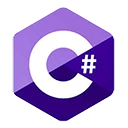Introduction
Writing clean, readable, and maintainable code is crucial in C# development. This guide provides an overview of the best practices for code style and conventions in C# programming, helping you create code that is easy to understand and work with. Sample code and examples are included to illustrate key concepts.
Code Style and Conventions
Adhering to consistent code style and conventions is important for collaboration and code quality. Key aspects include:
- Naming Conventions: Use meaningful names for variables, classes, methods, and namespaces. Follow naming conventions like PascalCase for class names and camelCase for method and variable names.
- Formatting: Consistently format your code. Use indentation, line breaks, and a clear structure to improve readability.
- Comments and Documentation: Include comments for complex code sections and document your public APIs. Use XML documentation comments for documenting methods and classes.
- Consistent Bracing: Choose a bracing style (e.g., K&R or Allman) and apply it consistently throughout your codebase.
- Code Organization: Organize your code logically into namespaces, classes, and methods. Keep your classes and methods focused on a single responsibility.
Sample Code and Examples
Below are some sample C# code snippets that demonstrate best practices for code style and conventions.
C# Code (Naming Conventions Example):
// Class name follows PascalCase
class MyClass
{
// Method and variable names follow camelCase
public void myMethod()
{
int myVariable = 42;
}
}
C# Code (Comments and Documentation Example):
using System;
/// <summary>
/// This class represents a person.
/// </summary>
public class Person
{
private string name;
/// <summary>
/// Gets or sets the person's name.
/// </summary>
public string Name
{
get { return name; }
set { name = value; }
}
/// <summary>
/// Displays a greeting message.
/// </summary>
public void Greet()
{
Console.WriteLine($"Hello, my name is {name}.");
}
}
Conclusion
C# best practices for code style and conventions help you write code that is clean, consistent, and easy to maintain. By following these principles, your codebase becomes more readable and collaborative. Applying these practices to your C# development workflow ensures that your projects are well-organized and accessible to both your team members and future maintainers.

